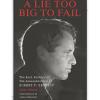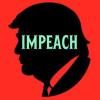The CIA and the JFK Assassination, Pt. 1

Photo Credit: Jeff Dean/Wikimedia Commons
One month to the day after the assassination of President John F. Kennedy in Dealey Plaza in Dallas, TX, former President Harry Truman recommended that the U.S. abolish the Central Intelligence Agency… In an op-ed column published in the Washington Post on Dec. 22, 1963, Truman never linked the CIA to President Kennedy’s murder, but the timing of the explicit and strongly worded column and complaint implied a connection.
—Joseph LazzaroThe evidentiary record of the JFK assassination is so contaminated by pervasive misconduct on the part of the… CIA that the good faith of senior government officials simply [cannot] be assumed.
—Jefferson MorleyIf anything in this life is certain, if history has taught us anything, it’s that you can kill anyone.
—The Godfather Part III’m not privy to who struck John.
—James Angleton, head of the CIA’s counterintelligence staff, 1954-75
The assassination by hidden sniper fire of President Kennedy on Nov. 22, 1963 was a gigantic security failure by the Secret Service. (The best book on the unbelievable blundering by JFK’s protectors is Vincent Palamara’s Survivor’s Guilt: The Secret Service and the Failure to Protect President Kennedy [2013].) The assassination was also a colossal intelligence failure by the Central Intelligence Agency, then the principal (and lavishly funded) government intelligence organization. As Jefferson Morley, former Washington Post reporter and now a leading authority on the assassination, observes: “[I]t seem[s] indisputable that the killing of a democratically elected chief of state in broad daylight constituted some kind of intelligence failure. It wasn’t supposed to happen and lots of people were paid good money to make sure it didn’t happen. But it did.”
At the time President Kennedy was gunned down, the CIA could not possibly have been unfamiliar with the alleged assassin, ex-Marine Lee Harvey Oswald. Unless it was comatose, Oswald must have been a person of interest to the Agency long before the assassination. In 1957–58, Oswald had been stationed as a radar operator at the Atsugi Naval Air Base in Japan, where there was a major CIA station and from which the Agency’s U2 spy planes flew high-altitude missions over the Soviet Union; in 1959, the CIA knew, Oswald had defected to the Soviet Union, announced he had secrets to turn over to the Soviets, and attempted to renounce his American citizenship. In late September/early October 1963, six weeks before JFK’s murder, Oswald had been under CIA surveillance when he visited Soviet and Cuban diplomatic facilities in Mexico City multiple times, supposedly to arrange a return to the Soviet Union (or to visit Cuba, or both).
For years, critics have accused the CIA of suppressing information relevant to the assassination of President Kennedy. The Agency, they allege, even withheld pertinent information from both the Warren Commission (which investigated the assassination in 1963–64) and the U.S. House of Representatives Assassinations Committee (which reinvestigated the assassination in 1976–79).
These critics, we now know, were right.
What for many years seemed unthinkable has turned out to be true after all.
There was a CIA cover-up. The CIA did suppress information. The CIA did stonewall both of the official government investigations of the JFK assassination. And as a consequence of this Agency misconduct, both investigations were compromised in important respects—particularly in regard to the fundamental issues of whether the assassination resulted from a conspiracy and whether Lee Harvey Oswald (alleged to be the sole assassin in the Warren Report and alleged to be one of multiple assassins in the Report of the House Assassinations Committee) was affiliated with the CIA.
The CIA’s enormous intelligence failure, combined with the Agency’s appalling concealment of information from the officials in charge of investigating the murder of an American president, raises a number of issues. This Article will address two: (1) whether the CIA was involved in the assassination, and (2) whether Lee Harvey Oswald worked for or with the CIA. This Article will then examine two brand-new, bombshell revelations about CIA suppression of information on the assassination. The first revelation was on Sept. 16, barely two months ago. The second occurred last month, on Oct. 6. Finally, the reasons that the Agency concealed its CIA-Mafia murder plots from the Warren Commission will be explored.
Possible CIA Involvement in the Assassination
Almost from the moment JFK succumbed to his bullet wounds, there have been suspicions that, officially or unofficially, directly or indirectly, employees or operatives of the Central Intelligence Agency might have been involved in the assassination.
These suspicions are not without foundation. Appalled by various abuses and excesses committed by the CIA, embittered by CIA endeavors to deceive and manipulate him, JFK had fired a director of the CIA in 1961 and was struggling to rein in the Agency until the day of his death. After the Bay of Pigs debacle in 1961, Kennedy is reported to have vowed that he would “splinter the CIA into a thousand pieces and scatter it into the winds.” Conversely, top-ranking CIA officials despised JFK’s policies and politics. That the Agency, which specializes in deception, disinformation and plausible deniability, and which in those heady days was operating like a secretive criminal syndicate—covertly carrying out political assassinations (“executive actions”), successfully scheming to overthrow or destabilize foreign governments, and even plotting with the Mafia to commit murder—might have had something to do with the JFK assassination is not an unreasonable supposition.
Those who suspect the CIA was somehow behind the assassination reject the lone assassin theory and believe the assassination was the result of a conspiracy. They disagree as to whether Lee Harvey Oswald was one of the conspirators. Many think he was the patsy.
The first book by a serious researcher to suggest the likelihood of CIA connections to the JFK assassination was the late Harold Weisberg’s Oswald in New Orleans: Case of Conspiracy with the CIA (1967). Weisberg was one of the most prominent of the first generation of Warren Commission critics and published nine books on the assassination.
The researchers who believe the CIA might have been involved in the assassination tend to think the involvement was unofficial. The assassins, they suggest, probably were lower or mid-level CIA employees (or ex-CIA employees) acting on their own and without the knowledge or approval of the CIA leadership. This was the view, for example, of former New Orleans district attorney Jim Garrison (now deceased), who carried out his own official investigation of the assassination and authored two key books on the JFK assassination. (Garrison also believed that, to avoid embarrassment to the Agency, upper-level CIA officials not involved in the assassination conspiracy nevertheless knowingly participated in a cover-up designed to prevent the CIA-connected murderers from being identified.) Under this view, the assassins presumably murdered Kennedy because they were right-wing military hawks who hated JFK’s liberal politics and foreign policy.
Other researchers who suspect CIA involvement are convinced that the assassination was arranged in the utmost secrecy by an entirely different set of right-wing, militaristic CIA employees—a small clique of high-ranking, JFK-hating CIA officials who acted in order to eliminate a president they firmly believed posed a dangerous threat to the national security. Mark Lane, author of Last Word: My Indictment of the CIA in the Murder of JFK (2011), espouses this view.
Under either theory of CIA involvement, it is accepted that the CIA-affiliated plotters might have permitted a few outsiders, including organized crime figures and right-wing extremists, to join the conspiracy.
The fact that the CIA obstructed government investigations of the JFK murder does not, of course, prove that the Agency was involved in the murder; on the other hand, it hardly tends to exculpate the Agency.
Institutionally, the CIA thrives on secrecy and smoke and mirrors; it masterfully practices deceptiveness, chicanery and mystification; and it revels in dirty tricks, clandestine devious activities, and surreptitious surveillance and infiltration. Even if Agency officials or operatives did assassinate JFK, there probably would have been no CIA documents revealing this; and if such documents did ever exist, they would have been destroyed long ago. Thus, even if it was true that the Agency was responsible for killing JFK, it would not be possible to prove this satisfactorily from official CIA records. Moreover, because of the code of silence among intelligence personnel, CIA employees having knowledge of Agency involvement in the assassination almost certainly would never reveal it, even under oath.
In overview, the view that the CIA was involved in the JFK assassination is not proven—and probably is unprovable. On the other hand, claims of Agency involvement are not facially preposterous and might be true even if incapable of proof.
Was Oswald a CIA Operative?
Regardless of whether Lee Harvey Oswald was a sole assassin, a conspirator or a patsy, it would be helpful to know if he worked for or with the CIA. Did he?
The two official investigations of the assassination decided he did not.
The 1964 Warren Report concluded that “there was nothing to support the speculation that Oswald was an agent, employee or informant of the CIA.” It accepted in its entirety the testimony of both the director and the deputy director of the CIA that “no one connected with the CIA had ever interviewed Oswald or communicated with him in any way.” It swallowed whole the director’s sworn affidavit that “Oswald was not an agent, employee, or informant of the CIA, that the Agency never communicated with him in any manner or furnished him with any compensation, and that Oswald was never directly or indirectly associated with the CIA.”
The 1979 Report of the House Assassinations Committee “confirmed the Warren Commission testimony” of the CIA’s two top officials. “There was no indication in Oswald’s CIA file that he had ever had contact with the Agency,” the Report concluded, and “taken in its entirety, the items of circumstantial evidence that the committee had selected for investigation as possibly indicative of an intelligence association did not support the allegation that Oswald had an intelligence agency relationship.”
The conclusions reached in both the Warren Report and the House Assassinations Committee Report to the effect that Lee Harvey Oswald was not in any way affiliated with the CIA, based as they are largely on denials by the CIA itself, may be wrong. As stated above and as explained in more detail below, both the Warren Commission and the House Assassinations Committee were deceived by the Agency with respect to its dealings with Oswald. And, as the late university professor Philip H. Melanson observed in his invaluable book Spy Saga: Lee Harvey Oswald and U.S. Intelligence (1990), “there is extensive circumstantial evidence that Oswald was in fact [a CIA] agent.”
Between 1959 and 1963 Oswald was frequently in the company of persons with known or suspected CIA ties. During these years Oswald was, in the words of Melanson, “shadowed by persons with demonstrable or probable CIA connections.” A few examples:
While living in Texas in 1962–63, Oswald had a bizarre close friendship with the Russian-born, cultured, aristocratic, enigmatic George DeMohrenschildt, who was nearly 30 years older than Oswald. DeMohrenschildt undoubtedly had CIA affiliations and has been aptly described as one of Oswald’s “spookiest” acquaintances. The international-traveling DeMohrenschildt spoke several foreign languages and received a master’s degree from the University of Texas and a doctorate from the University of Liège in Belgium; his intelligence cover was that he was a “petroleum geologist.” As Jim Garrison once scoffingly remarked: “Here you have a wealthy, cultured White Russian émigré who travels in the highest social circles—he was a personal friend of Mrs. Hugh Auchincloss, Jackie Kennedy’s mother—suddenly developing an intimate relationship with an impoverished ex-Marine like Lee Oswald. What did they discuss—last year’s season at Biarritz, or how to beat the bank at Monte Carlo?” The most realistic explanation for DeMohrenschildt’s weird odd-couple relationship with high school dropout Lee Harvey Oswald is that he was the CIA’s “babysitter” for Oswald (in intelligence community parlance, a “babysitter” is an agent assigned to protect or watch over another agent or a person of interest to an intelligence agency).
DeMohrenschildt’s involvement in espionage went back long before he met Oswald. In 1941 he was detained in Texas by FBI agents who caught him photographing or sketching a Coast Guard station and suspected he was spying for the Axis. In 1957 he was expelled from Yugoslavia based on suspicions he was engaged in espionage. DeMohrenschildt testified at length before the Warren Commission. On Mar. 29, 1977, he committed suicide shortly before he could be interviewed by the House Assassinations Committee.
In New Orleans in 1963, Oswald associated with CIA assets David Ferrie (an expert pilot who flew airplanes for both the CIA and the Mafia), Guy Banister (a former FBI agent, former Naval Intelligence officer, rabid segregationist and founder of the “Anti-Communist League of the Caribbean”), and Clay Shaw (a former head of the International Trade Mart in New Orleans and the only person ever criminally charged with plotting to murder JFK).
On Sept. 17, 1963, when Oswald applied for a visa at the Mexican consulate in New Orleans, the visa immediately preceding his in numerical sequence was issued to William Gaudet, a “former” CIA employee.
Numerous books and articles by reputable scholars or reliable researchers suggest that Oswald was either an operative or a contract agent of the CIA. Melanson’s Spy Saga marshals an array of evidence concerning Oswald’s frequent and unusual interactions with CIA operatives and operations, and reaches the conclusion that Oswald was a “U.S. intelligence agent-provocateur.” Melanson’s book not only demonstrates that Oswald must have been some sort of United States intelligence operative, but also convincingly argues that “Oswald’s links to CIA-related persons, projects, and contexts appear far stronger than do those to any other U.S. intelligence agency…”
Another weighty book is Oswald and the CIA (1995; new ed. 2008), by university professor and former military intelligence officer John Newman, which presents a large body of evidence that prior to the assassination the CIA had a keen operational interest in Oswald. Newman says that Oswald’s mysterious trip to Mexico City only weeks before the assassination “may have had some connection to the CIA…”
In his 2008 book, Our Man in Mexico: Winston Scott and the Hidden History of the CIA, as well as in numerous articles, Jefferson Morley details the Agency’s extensive surveillance and monitoring of Lee Harvey Oswald’s activities.
Based on his extensive research, Morley has concluded that the notion that in the weeks preceding the assassination high officials in the CIA’s counterintelligence section were running “a closely held operation involving Oswald” can no longer be deemed implausible. Morley believes that a cable sent from CIA headquarters to the CIA’s Mexico City office on Oct. 10, 1963, six weeks before the assassination, which deceptively withheld requested information about Oswald and absurdly claimed Oswald was “maturing,” is suggestive of the possibility the Agency “may have had some kind of relationship with Oswald that it was trying to protect.” The cable originated from the special affairs staff of the CIA’s covert operations division and was signed by four CIA officials involved in counterintelligence or covert operations, indicating what Morley calls a “a strong CIA interest in Oswald.” That same day, before the cable was dispatched, Morley has discovered, “six senior CIA officials in the Counterintelligence Staff” whose “primary responsibility was running covert operations” discussed Oswald among themselves. Morley plausibly suggests that the fact that “six senior operations officers” were interested in the supposedly “lowly, pathetic… ex-Marine” indicates that “he was part of a covert [CIA] operation.”
However, neither Newman nor Morley has been able to confirm that Oswald himself participated in or was even aware of any CIA operation that might have involved him.
In 1978, in an astonishing break with the code of silence adhered to in the intelligence community, a former CIA finance officer appeared before the House Assassinations Committee and testified that he believed that Lee Harvey Oswald was a “regular employee” of the CIA, and that he believed Oswald received “a full-time salary for agent work for doing CIA operational work.” He also testified that he had been told by another Agency employee that CIA money had been disbursed for “the Oswald project or for Oswald.” Other Agency employees interviewed by the Assassinations Committee, however, disputed his testimony, which the Assassinations Committee chose not to believe.
It is improbable that any CIA records showing that Oswald worked for the Agency would still exist or, if they do exist, would ever be disclosed.
That Lee Harvey Oswald ever worked for the CIA is, therefore, likely but unproven, and probably incapable of satisfactory proof one way or the other.
(If Oswald did work for the CIA, it is arguable that the Oswald-was-the-lone-assassin theory cannot survive. The theory relies, Justyn Dillingham notes, “on the assumption that Oswald was a disgruntled loner,” and therefore, Dillingham contends, the single-assassin notion would be “irreparably shattered” by proof that “Oswald was any kind of an intelligence agent…”)
To be continued…
Donald E. Wilkes, Jr. is a professor emeritus at UGA, where he taught in the law school for 40 years. This is his 41st published article on the JFK assassination. Prof. Wilkes will deliver a speech on the assassination at the Athens-Clarke County Library on Baxter Street at 7 p.m. on Thursday, Nov. 19.












comments